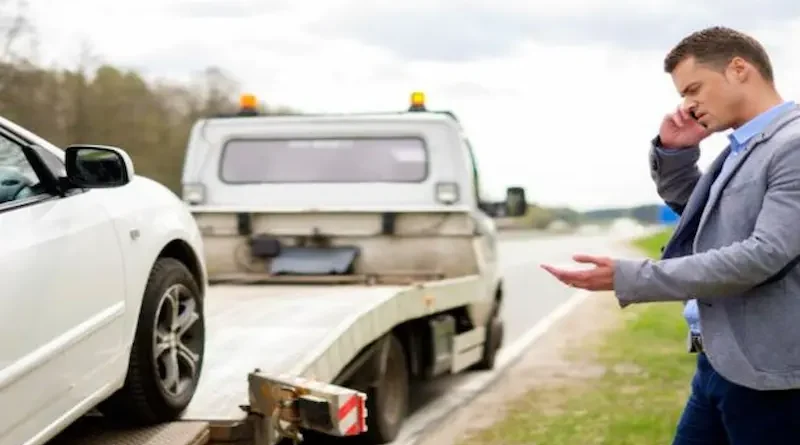Why Roadside Assistance Is Worth It Even If You Rarely Drive
Introduction
Many people assume that if they don’t drive daily, a roadside assistance plan is simply an unnecessary expense. On the contrary, emergencies on the road do not discriminate based on how frequently you use your car. Even infrequent drivers can find themselves stuck by the roadside, facing issues that require immediate attention. Whether your driving is limited to occasional commutes, weekend trips, or sporadic errands, having access to a trusted professional roadside assistance service can make an important difference. It ensures that a minor mishap doesn’t escalate into a situation that throws your entire schedule into chaos or leaves you feeling helpless.
Even for those who take preventive measures and keep their vehicle well-maintained, unexpected breakdowns can occur due to factors outside their control, such as a dead battery from a car that has been idle for too long, or a flat tire caused by prolonged storage. Many drivers overlook the fact that time and exposure to the elements can degrade vehicle components, even if the car isn’t in active use. With a comprehensive roadside assistance plan, you can go about your day with the confidence that, should the unexpected occur, there is always a quick and reliable solution ready to assist—no matter how rarely you drive.
Unexpected Breakdowns Can Happen Anytime
Vehicle trouble is not exclusive to those who are constantly on the move. Malfunctions often occur when vehicles are left parked for long stretches. For instance, car batteries gradually lose their charge if not used regularly, and tires can develop flat spots or even dry rot simply from lack of use. Similarly, issues like failing belts, corroded electrical connections, or even rodents chewing on wiring are more likely to develop in stationary vehicles. Age and environmental factors play a significant role in car reliability, regardless of the mileage on the odometer.
The importance of roadside assistance becomes even clearer when you consider that a breakdown can happen at any place or any time, including when you’re far from familiar surroundings or during non-business hours. According to Consumer Reports, being stranded without a plan often means waiting hours for help that may be expensive or hard to find. The risk is greater during nighttime travel or in rural areas where local services may be limited or slow to respond.
Services Beyond Towing
Towing is probably the best-known feature of roadside assistance, but it is just the beginning. Most modern roadside plans offer a robust set of services for everyday challenges, including:
- Jump-starting a dead battery is a common issue that occurs when a vehicle has been idle for an extended period.
- Changing flat tires when you don’t have the right tools or expertise.
- Delivering emergency fuel if you run out far from a gas station.
- Lockout assistance for those moments when you accidentally lock yourself out of your vehicle.
These services are convenient no matter where you are. Still, they are particularly valuable when you find yourself in an unfamiliar neighborhood, or far from friends and family who might otherwise help. In severe weather or late at night, the ability to call for professional help can be the difference between a minor inconvenience and a potentially dangerous or stressful ordeal. Fast, reliable roadside assistance protects your safety and minimizes lost time.
Peace of Mind for Infrequent Drivers
Occasional drivers are sometimes surprised to learn that neglect—not regular use—can increase the risk of automotive failure. Cars need to run regularly to keep fluids circulating and mechanical parts lubricated. Lack of use can cause fluids to settle, seals to dry out, and tires to degrade, leading to tire blowouts or difficulty starting the engine. These risks mean that infrequent drivers are often more at risk than daily commuters who perform regular checkups.
For those who lack mechanical knowledge or easy access to a mechanic, the value of roadside assistance becomes even more evident. As highlighted by the AARP, seniors or those living alone gain a little extra security knowing they won’t have to rely on family or neighbors if something does go wrong. Roadside plans provide comfort to anyone worried about emergencies, whether you’re a new driver, temporarily without a support network, or simply looking for added peace of mind.
Considerations When Choosing a Plan
Coverage Area
One size does not fit all. When shopping for a roadside assistance plan, it’s important to verify that the coverage extends to all the locations you might visit—be it across state lines, during weekend getaways, or in secluded, rural areas. Some lower-cost plans limit their service areas or restrict them to certain regions, so read the terms carefully to make sure you’ll be protected on any trip.
Response Time
The speed at which help arrives is critical, especially if you’re stranded in a vulnerable spot or during inclement weather. Look for reviews and ratings online to determine which providers are known for their fast, dependable service. Prompt assistance is more than a matter of convenience—it’s a matter of safety and peace of mind.
Service Offerings
Different roadside assistance providers offer varying levels of coverage and service. While some plans are limited to a basic set of benefits, others provide additional perks, such as trip interruption insurance, assistance with lost or broken keys, or minor on-site mechanical repairs. Compare several plans and their options to ensure your final choice aligns with your driving habits, travel plans, and potential needs in the event of an emergency.
Final Thoughts
No matter how infrequently you drive, a roadside assistance plan is one of the smartest, most cost-effective ways to prepare for the unexpected. The relatively low annual cost is a small price for the convenience, safety, and financial protection it provides. At the end of the day, the assurance that help is always within reach—no matter the emergency—lets you focus on enjoying your travels, rather than worrying about what could go wrong every time you put your key in the ignition.

